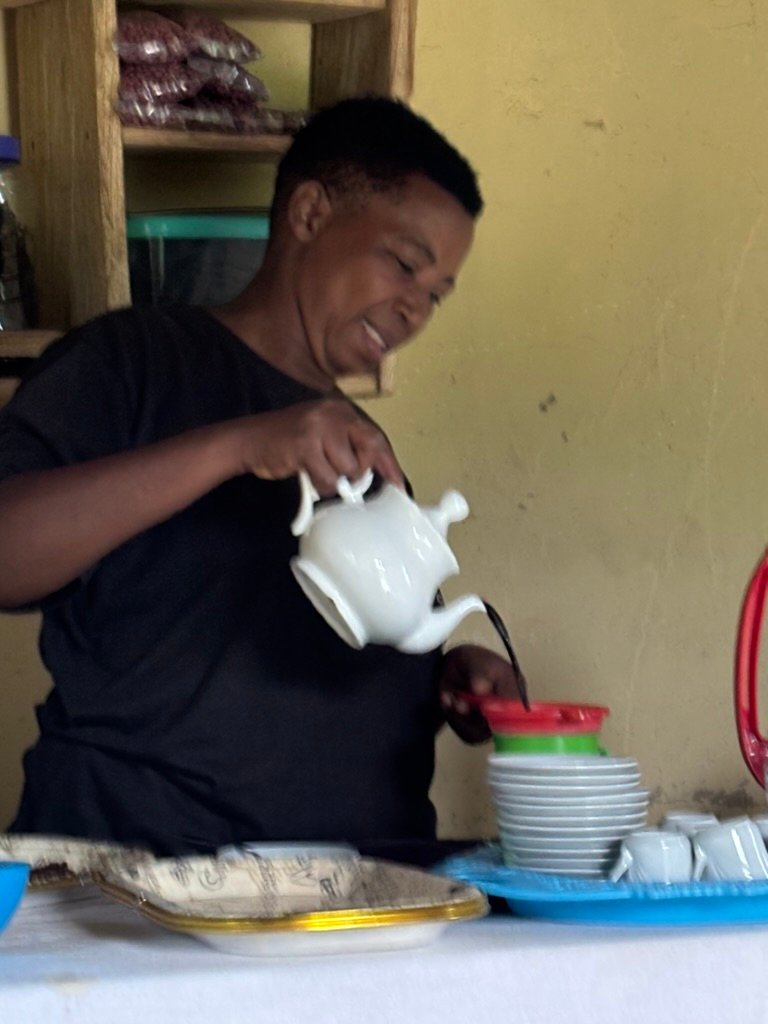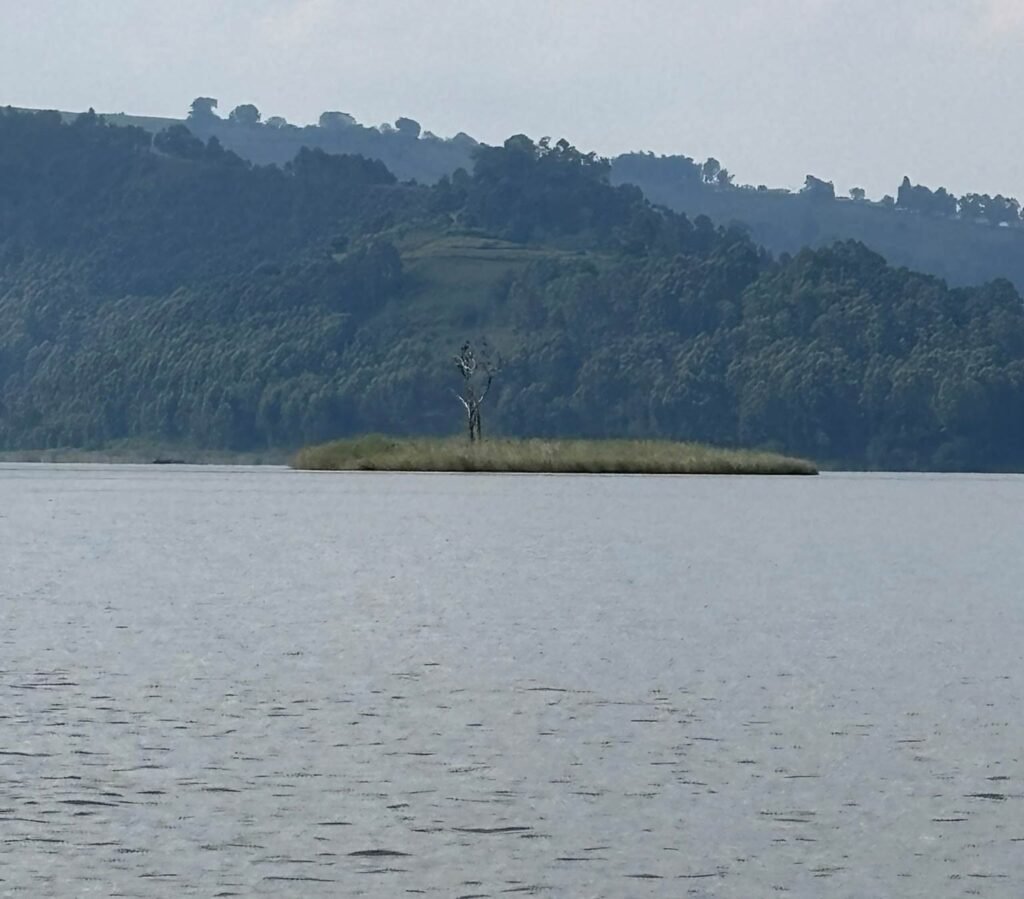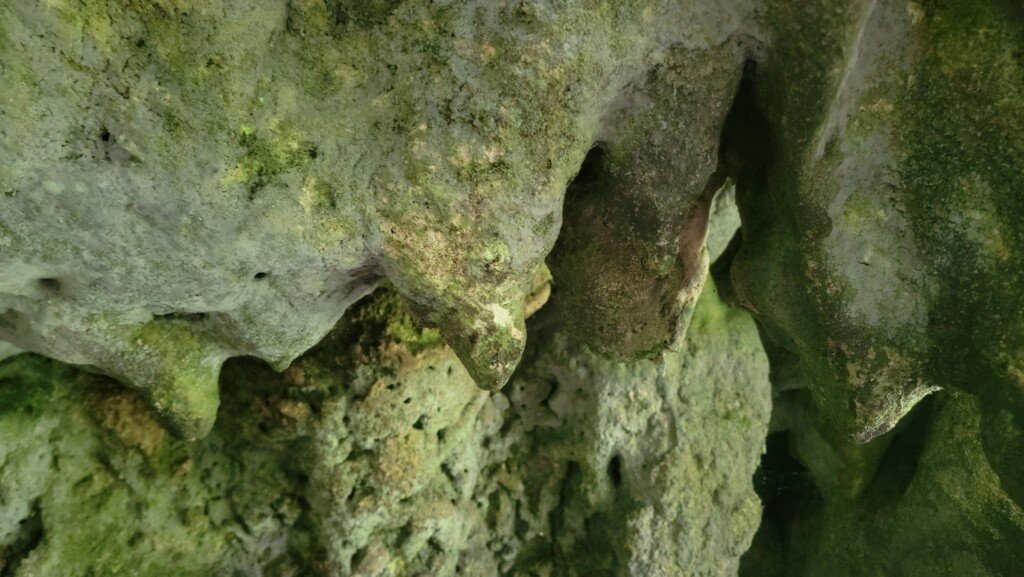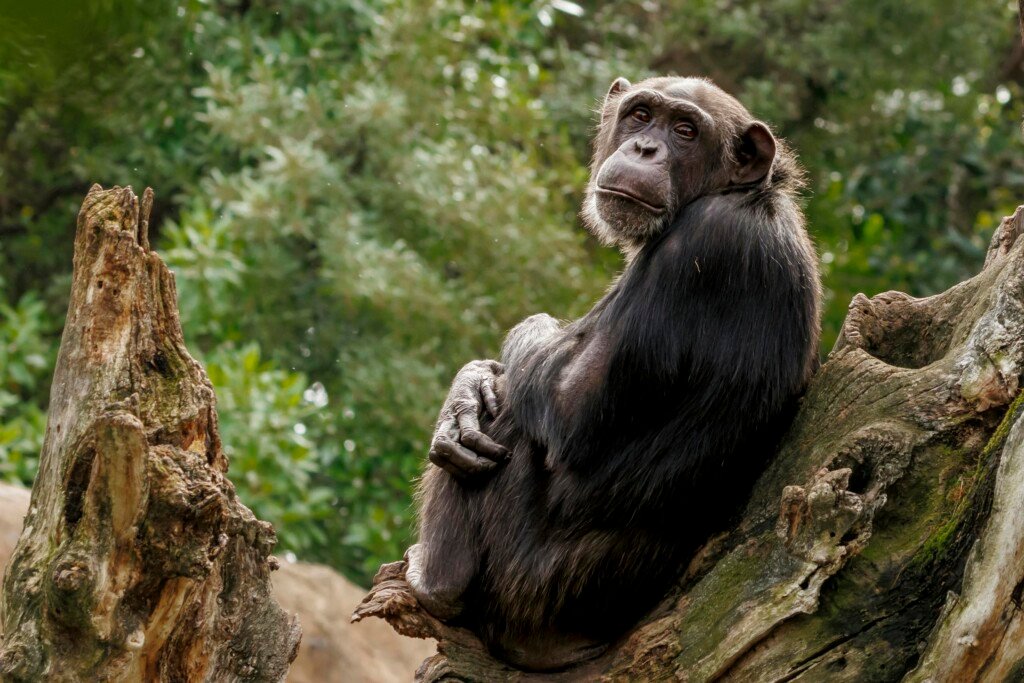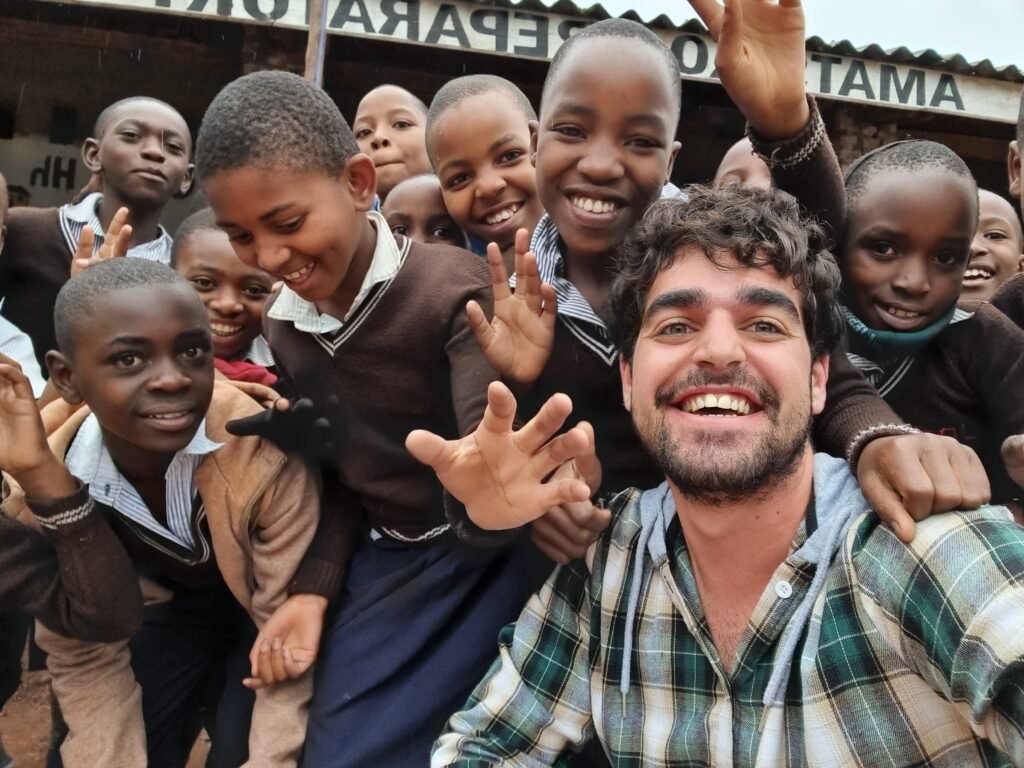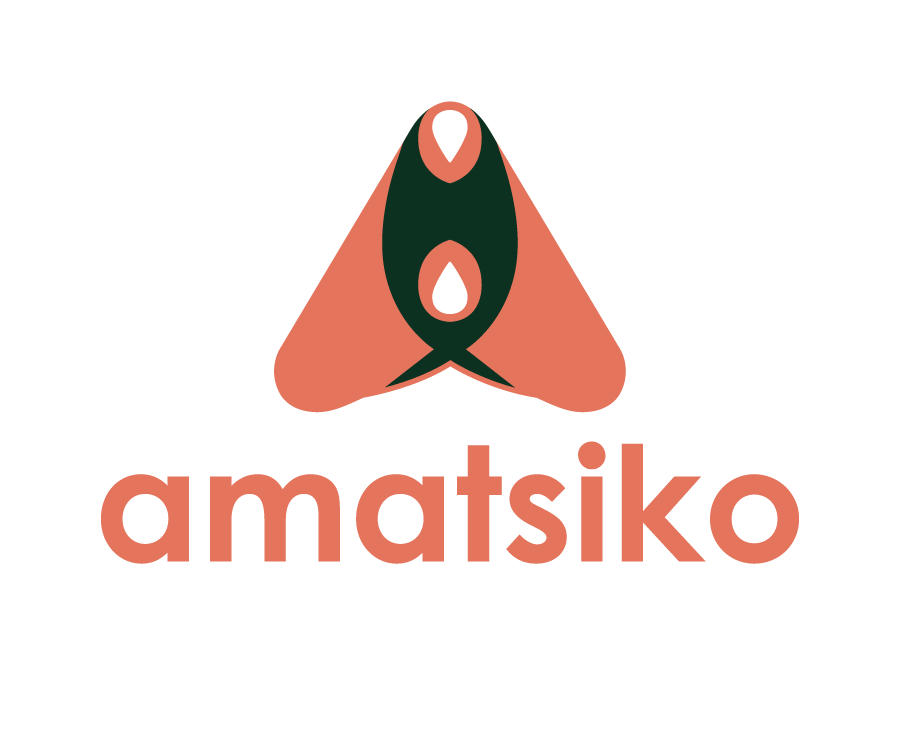Day 8 – Chimp Trek and Community in Kibale
From chimp trails to community trails, today was nature’s full story
Table of Contents
Chimpanzee trekking in Kibale Forest
We were up and out early for our chimpanzee trek in Kibale Forest—pronounced Chibale. After a short briefing, we were split into small groups of six and assigned a guide named Rhys, along with three armed guards. The terrain here was much flatter than Bwindi, so we made fast progress into the dense green.
Not long after we started, we heard distant gunshots and shouting. It wasn’t poaching—it was to scare elephants away. Kibale Forest is home to over 240 forest elephants, which can be surprisingly aggressive. Our guide shared a chilling story: rounding a corner into a mother and baby elephant, they fired warning shots—but the elephant kept advancing. One woman fainted on the spot, her husband and son hiding in a nearby tree’s buttress roots. Thankfully a third shot turned the elephant, and after being placed in recovery position, she came round. It was a powerful reminder that this forest is very much wild and alive.
About an hour into the trek, we spotted a male chimpanzee sleeping high in the canopy. After overnight rain, chimps avoid the ground—choosing higher branches to stay warm and dry. We watched as he awoke, then, unexpectedly, a gentle shower of rain and poo fell through the leaves. Cue a strategic retreat!
Moments later, we encountered other chimps—some swinging through branches, others grooming on the forest floor. They paid no attention to us or our clicking cameras. We wore masks too—chimpanzees share over 99% of our DNA, making strict health precautions vital to prevent cross-species disease. Kneeling quietly, I felt an intimate connection: their relaxed focus reminded me of human families, yet with a grace and wildness all their own.
We also spotted velvet‑tailed and red‑tailed monkeys, and saw guava fruits strewn across the forest floor—as monkeys discard unripe fruit that tastes off.
Eventually we emerged at a forest road, where our team was waiting. After a hot lunch and a rest at Bweza Kibale lodge, we set off for a community-led experience.
Bigodi Wetland Walk
We arrived at Bigodi Wetland Sanctuary, a 4.5 km boardwalk loop through diverse habitats—swamps, marshes, woodland and open water. Known as the “Home of the Great Blue Turaco,” this area hosts over 200 bird species, and primate species including olive baboons, red‑tailed monkeys, black‑and‑white colobus, grey‑cheeked mangabey, blue monkeys and more. We spotted various plants—including red ginger and medicinal herbs—as well as mudfish, orchids and monkeys camouflaged in the canopy. The walk took about an hour or so, often through slippery paths after rain—but every step rewarded us with something new.
Rest in Banana & Banana Gin
One of my favourite stops was Rest in Banana, where we met the “Banana Man” aka Denis Tumushabe. He showed us how local banana juice is made—completely by hand—and it was delicious. Then came banana beer (very fizzy), and two strengths of banana gin: 40% and 60%. The 60% hit like a firecracker. Afterwards, there was dancing and a weightlifting competition, and he even showed us his viral TikTok video. It was such fun!
Coffee at Jenny’s Garden
Next, we visited Jenny, a local coffee-growing farmer. Her garden was a food-lovers’ paradise—bananas, jackfruit, and wild-growing vanilla orchids. I’d never seen vanilla growing before; she explained how each flower must be pollinated by hand, and the beans dried carefully over two weeks to preserve their flavour. We then followed the full coffee journey—from bright red cherries to green beans, husking in a wooden mortar, and roasting over fire. Ground fresh and brewed in a sieve, it produced some of the richest, earthiest coffee I have ever tasted. It’s a world apart from the convenience of takeaway lattes.
Travel Tip of the Day: Slow Down and Get Involved
- Wear sturdy hiking boots and bring a raincoat—wet boardwalks and muddy trails await.
- Don’t skip the Bigodi Wetland Walk—its biodiversity complements the chimp trek perfectly.
- Support local communities: bring a few Ugandan shillings to buy crafts, coffee, or vanilla—it all helps livelihoods.
Personal Reflection
Today was a harmony of wilderness and humanity. From the eyes of a forest chimp to the pride of a coffee farmer, I sensed a deep connection between nature and culture. Travel isn’t just about seeing—it’s about understanding. And today, Uganda taught me exactly that.
Tomorrow: we’ll journey on to Lake Mburo National Park for an evening safari game drive.






















